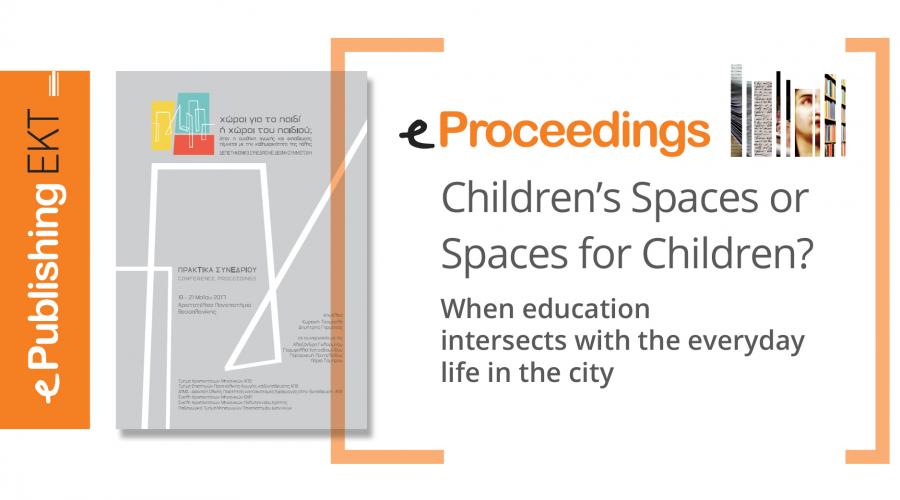
A new publishing partnership between the Architectural School of the Aristotle University of Thessaloniki (AUTH) and the National Documentation Centre was launched with the publication of proceedings from the international interdisciplinary conference 'Children’s spaces or spaces for children’. At the May 17th conference held at the Aristotle University, Thessaloniki, 224 attendees discussed changes in the educational-spatial landscape, particularly in terms of children’s learning.
A child's relationship with school space and that of the area is a particular challenge to the conditions of modern everyday life. The child-centered approach to lifestyle and education is becoming more complex and is moving towards a balanced and multifaceted relationship with the environment, requiring architects and educators to find solutions. But beyond the school-city relationship in the context of institutionalised learning processes, the city presents other aspects of a child's life, especially those related to play.
What role has play in the modern urban space? In what ways is it involved in the cognitive and social-emotional development of the child? How does play enrich the urban spatial experience of integrating the child into the spatial-cultural life of the city?
Answers to these questions were sought at the international conference organised by the Schools of Architecture, Early Childhood Education and the Graduate Programme ‘Total Quality Management and Innovative Applications in Education’, Aristotle University of Thessaloniki, together with the Schools of Architecture NTUA and University of Crete and the Department of Preschool Education, University of Ioannina.
Educators, sociologists, anthropologists, psychologists, artists and architects presented their research, highlighting important aspects of learning and spatial relationship and the role of spatial experience in the construction of cognitive and socio-emotional functions of the child, while the key speakers of the conference, scientists whose projects are internationally recognised, set the framework for debate on the big issues of changes in the educational-spatial landscape particularly in terms of children’s learning.
In total, there were 116 projects (99 notices and 16 posters) grouped into the following four sections based on their subject of specialisation:
- The transformation of the School’s Space and educational change
- The multimodal intersection of urban and education spaces
- The city as a learning and educational environment
- Introduction of innovations to upgrade the educational
The conference proceedings have recently been published on EKT’s eProceedings platform, which highlights the activities of scientific bodies and the work of Greek researchers. Search the introduction, key speaker recommendations and conference themes at https://bit.ly/2Trd3Oy.








